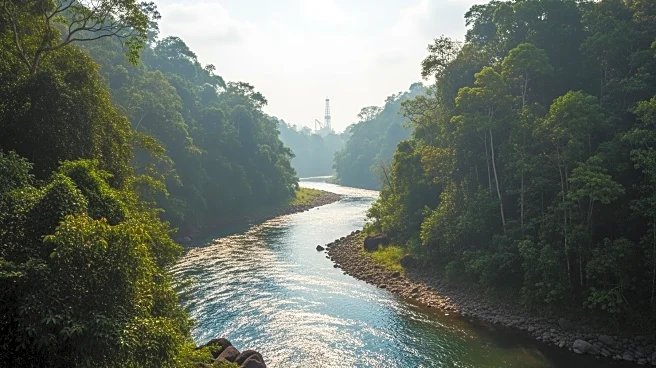What's Happening?
Petrobras, Brazil's state-controlled energy company, has received approval to drill an exploratory oil well in the Foz do Amazonas basin, near the mouth of the Amazon River. This decision concludes a prolonged
standoff with environmental regulators. The drilling is set to begin immediately and is expected to last five months. The approval comes as Brazil prepares to host the UN climate conference, COP30, highlighting the country's dual priorities of economic growth and environmental protection. Environmentalists have expressed concerns about potential oil spills affecting the Amazon's ecosystem and indigenous communities reliant on the region for fishing.
Why It's Important?
The approval for Petrobras to drill in the Foz do Amazonas basin is significant for Brazil's energy sector, as the country's existing oilfields are projected to peak around 2030. The exploration in this region is seen as crucial for maintaining Brazil's energy sovereignty and economic growth. However, the decision has sparked controversy due to environmental risks, particularly the potential impact on the Amazon's delicate ecosystem. The move underscores the ongoing tension between economic development and environmental conservation, a key issue as Brazil positions itself on the global stage at the upcoming climate conference.
What's Next?
As Petrobras begins drilling, environmental groups are likely to continue their opposition, potentially leading to legal challenges or public protests. The Brazilian government will need to balance these environmental concerns with its economic objectives, especially as it seeks to attract foreign investment in its energy sector. The outcome of this drilling project could influence future regulatory decisions and the country's approach to balancing economic and environmental priorities.











